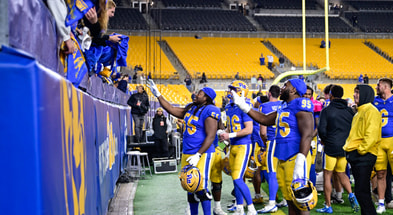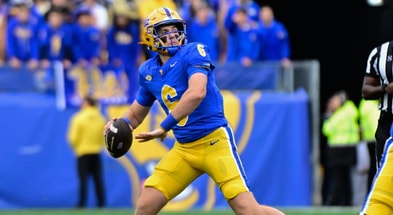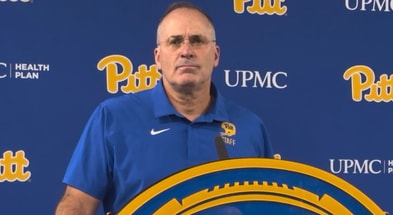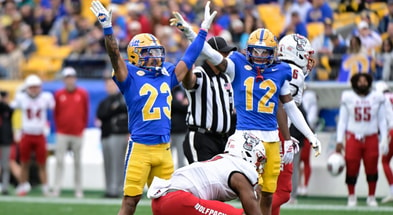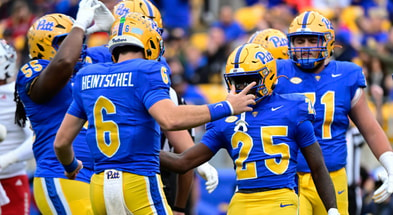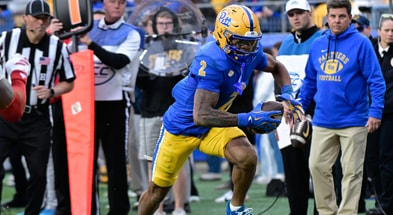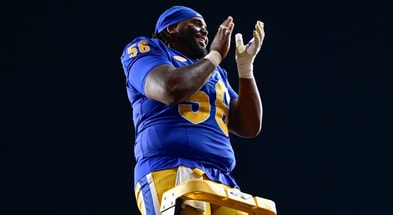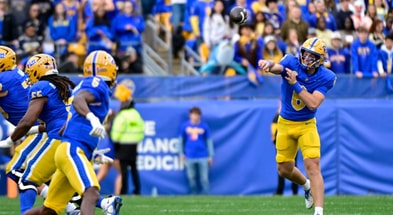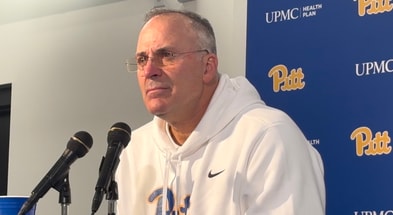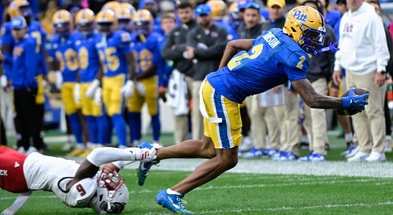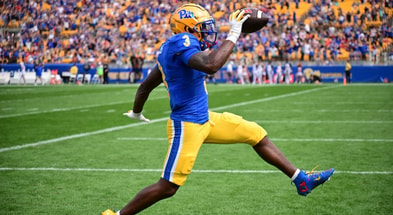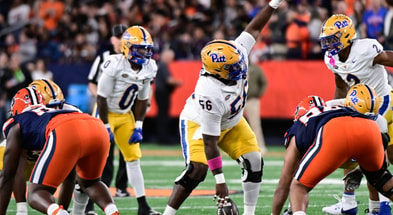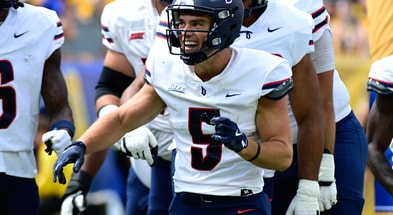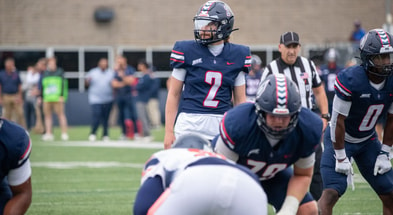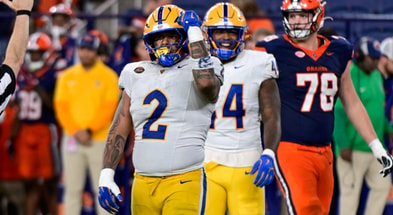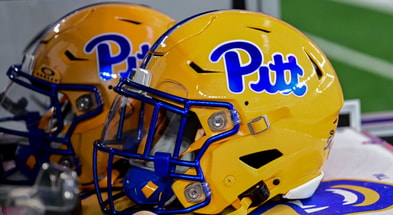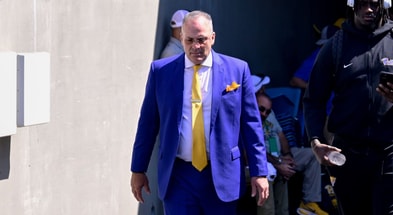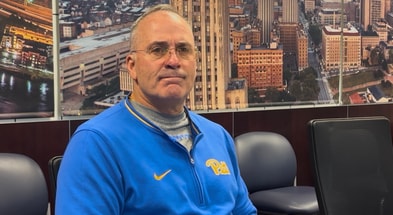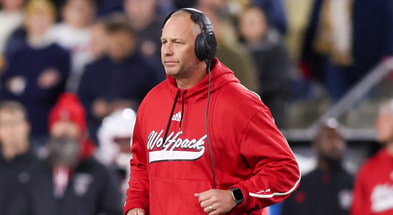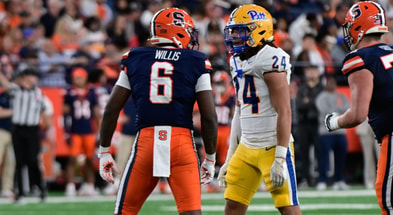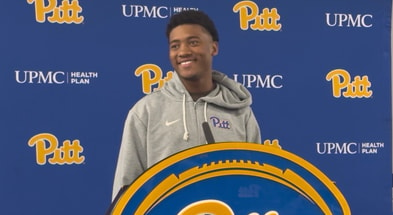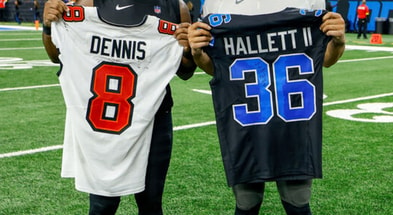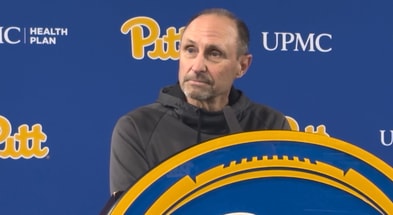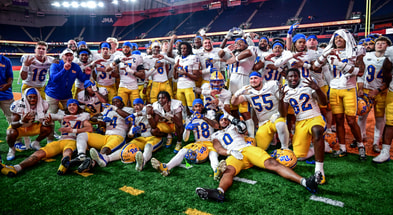'One of the Stupidest Decisions I Have Ever Seen:' Narduzzi Vehemently Opposes NCAA's Approval of Gambling on Pro Sports
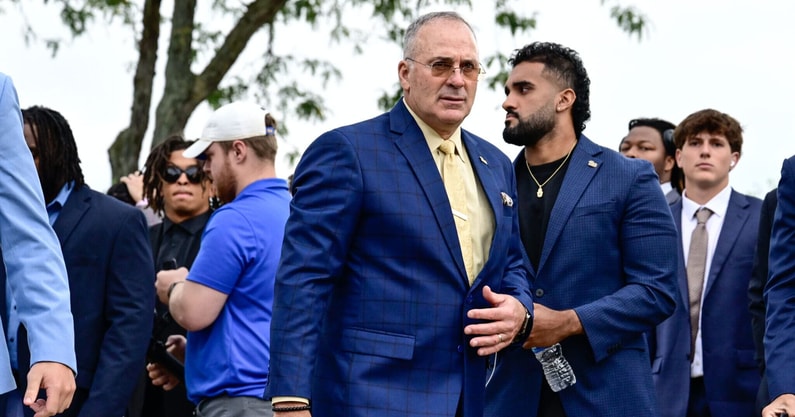
PITTSBURGH — Many coaches and prominent figures around college football are speaking out against the NCAA’s ruling regarding gambling on pro sports, with Pitt head coach Pat Narduzzi becoming the latest to do so on Monday.
Last week, the NCAA approved a sports betting policy that will allow student athletes and athletics department staff members to make bets on professional sports.
The decision was originally adopted by the NCAA Division I Administrative Committee on Oct. 8 and was approved by the D-II and D-III councils on Oct. 22. The rule is set to take effect on Saturday, Nov. 1.
Narduzzi shared some strong opinions on his opposition of the ruling and the impact it could have on student athletes, especially in the NIL, revenue-sharing era of college sports.
“No, they don’t ask the coaches. I think it’s absolutely one of the stupidest decisions I have ever seen,” Narduzzi said. “First of all, it’s a habit. It’s no different than smoking, drinking, doing drugs. It’s a bad habit, and I don’t think anybody in here would encourage your guys to go out drinking and get smashed on a Friday night or Saturday night, or at a ball game at Acrisure Stadium. It’s a disease. I mean, you saw, the same day that comes out, there’s a disease in the NBA with what’s going on there. It doesn’t matter how much money you make as a coach, you’re still gambling, you’re like that. It’s not to make money, it’s because, your addiction to it, I guess. I’m not speaking for anybody, but I just think it’s an addiction. If you want to go to the casino down the road, and you hang out there and throw your money away and think you’re gonna continue to win. I mean, gambling’s gambling. I’m not a gambler. I just don’t understand it. I’m not addicted to anything. I just don’t think it’s a great thing to teach our young people how to do.
“It’s hard enough in the compliance office of trying to get your guys not to gamble; you can gamble on a boxing match, you can gamble, you know, on horse races, because it’s not an NCAA sport. But who’s gambling on horse races, really, unless you go to the horse track. You can go to the casino and play craps or whatever you want to play. But now, it’s a thing on your phone, and you can pick it up, and you can get out of the app.
“It’s like, what are we doing? Once you do it once, and you win, and you want to go do it again, it becomes an addiction. I just think it’s not good. It’s the same thing with these availability reports. I mean, what are we doing? We’re encouraging gambling and people to say, ‘He’s out, let me put some more money down there, see if I can get it done and win.’ So, good question. It’s a bad deal. It all comes down to they probably don’t want to have to take care of all the business that goes with trying to monitor it. But like, push the wrong button on your phone and see what happens. You know, go, ‘I thought that, I did it, but I thought it was an NFL game, I pushed the wrong button.’ It just, put a bet on a college football game. I just think it’s not good, and I’m not gonna change my tune.”
Narduzzi says he has yet to address the betting change, but will do so in a team meeting this week.
“Tomorrow I’ll talk about because I haven’t had a chance to really address our team, I’ll talk about it to you. One of the first things I’ll talk about is, I guess November 1st they can do that, but like, you know, stay away. Nothing changes in our room. You guys shouldn’t be doing any of that. Save your money. Put it in the bank. That’s my feelings,” Narduzzi said.
In today’s era of college sports, student athletes have access to more money than ever before between direct payments from universities in the form of revenue sharing, which began on July 1, 2025, and NIL.
The NCAA still prohibits all betting on collegiate sports, as well as sharing information about collegiate competitions with other bettors. Any rule change regarding gambling on professional sports would not impact NCAA regulations prohibiting advertising and sponsorships associated with sports betting for NCAA championships.
